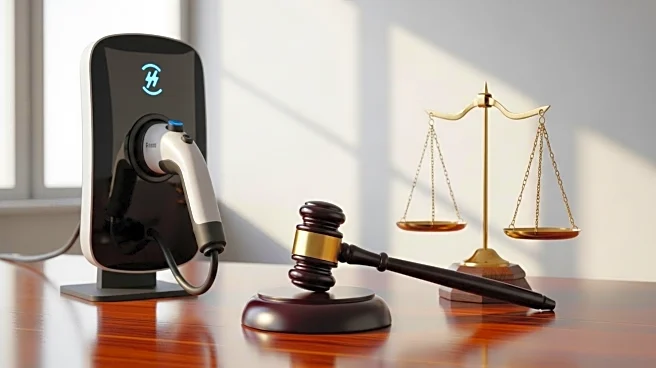What's Happening?
Brazil's labor court has mandated Volkswagen to pay approximately $30 million in compensation for collective moral damages due to labor abuses at a company-owned farm in the Amazon during the 1970s and 1980s. The ruling follows an investigation initiated by the Labor Prosecutor's Office in 2019, which uncovered extensive documentation and witness testimonies about the conditions faced by workers. These workers, numbering around 300, were subjected to slave-like conditions, including debt bondage, inadequate housing, insufficient food, and lack of medical care. The court found that these practices constituted one of the largest cases of slave labor exploitation in Brazil's recent history.
Why It's Important?
This ruling is significant as it highlights ongoing issues of labor exploitation and the legacy of slavery in Brazil. It underscores the importance of corporate accountability and the need for companies to adhere to ethical labor practices. The decision may influence international perceptions of Volkswagen and impact its operations in Brazil and beyond. It also serves as a reminder of the historical injustices that continue to affect labor relations in Brazil, prompting discussions on social responsibility and human rights within the corporate sector.
What's Next?
Volkswagen has announced its intention to appeal the court's decision, asserting its commitment to human dignity and compliance with labor laws. The appeal process will likely involve further legal scrutiny and could lead to additional revelations about the company's past practices. The case may also prompt other companies to review their labor practices and address any historical abuses, potentially leading to broader reforms in corporate governance and labor rights.
Beyond the Headlines
The case sheds light on the enduring impact of Brazil's colonial slave system on contemporary labor relations and social structures. It emphasizes the need for historical memory in understanding current realities and guiding anti-discrimination efforts. The ruling may inspire similar investigations into other companies with historical ties to labor abuses, fostering a culture of accountability and transparency in business operations.










